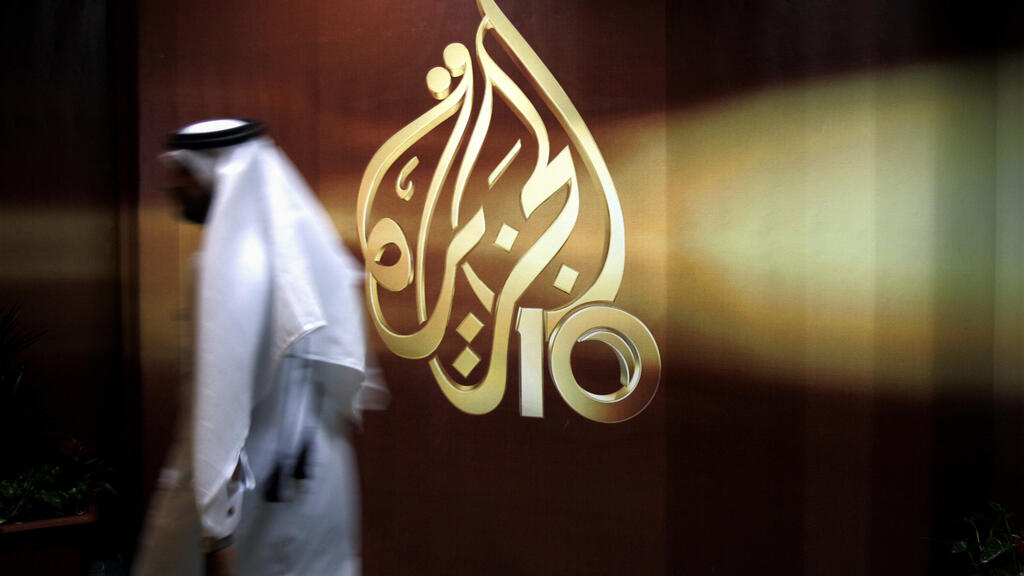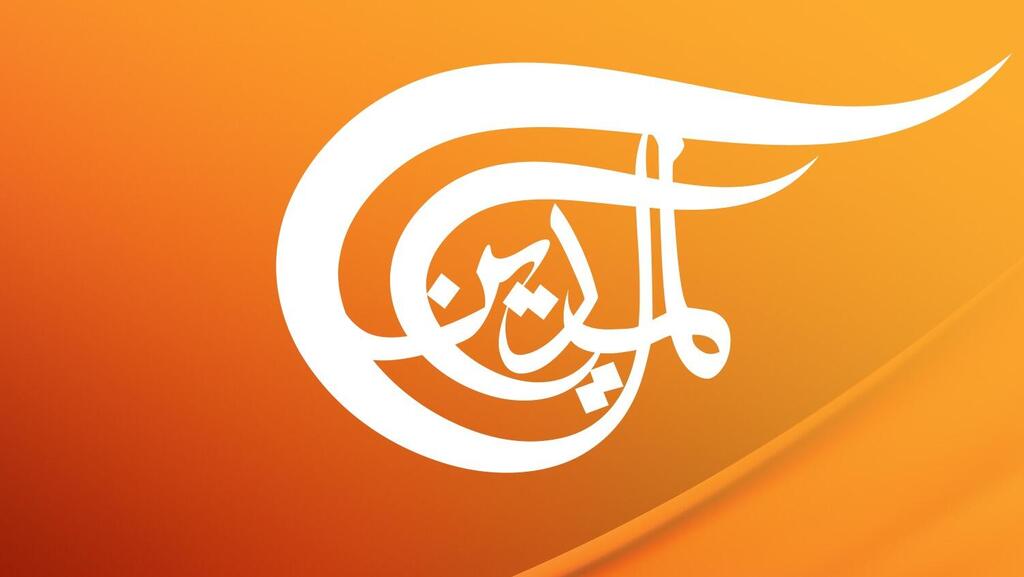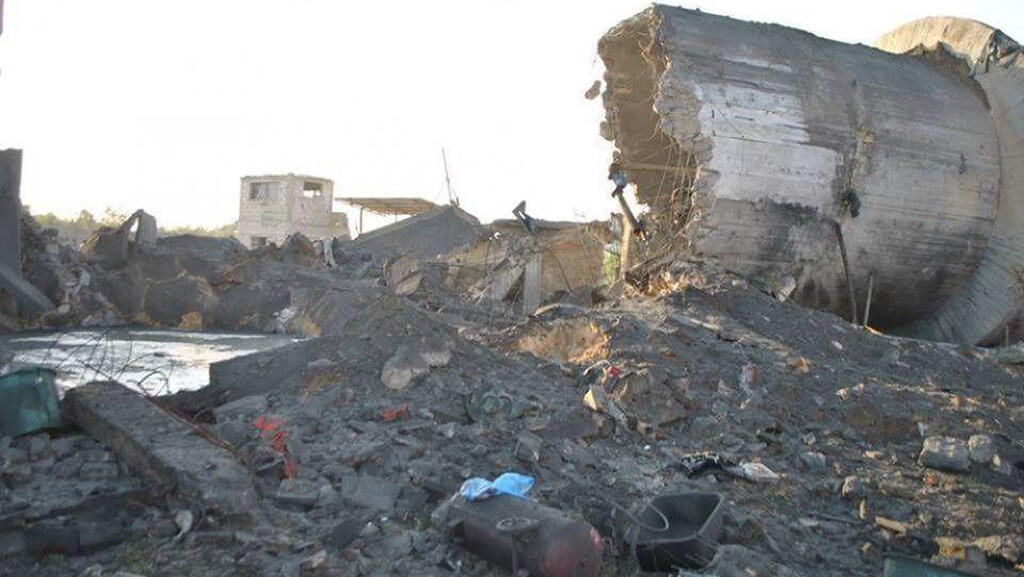“Israel views Al Jazeera as dangerous. It’s German Nazi style media” said the defense minister. The prime minister is already looking into the option of closing down the Qatari TV network’s operations in Israel”. This is how it was reported at the time. In the past Israel, refrained from taking this step “for fear of PR damage” the same report explained. However, it looks like the time has come.
More stories:
The defense minister was Avigdor Lieberman. The prime minister was Netanyahu. Who else? It was June 2017. It’s been six years since that war and, once again, there are demands to stop Al Jazeera operating inside Israel. And once again, it’s gotten no further than public declarations, legal agreements and zero steps actually taken.
Arab TV channels and networks frequently leave Israel with the same dilemma: Whether to curb their activities, endangering Israel’s image by giving the impression that it is censoring and obstructing journalists’ activities within its territory, or to allow them to work unhindered, invariably producing tendentious and wildly inciteful coverage.
This quandary is coupled with the public status enjoyed by these organizations, especially during this war. They serve not only to provide content about what’s going on in Israel for the consumption of Arabic speakers in Israel and across the globe, but also as a source for updates about what’s going on in Gaza for consumption by the Hebrew media.
They’ve provided dramatic pictures of the hostage handovers and coverage from various battlefields in the Gaza Strip. In addition to Al Jazeera, the names of TV networks such as Al-Manar, Al-Arabiya and Al-Mayadeen have been smoothly uttered by Israeli journalists, conveying their reports to Israeli audiences. They have become part of our living room experience.
Al Jazeera is clearly the best known and most popular of them all. It is a multi-channel TV network that broadcasts by satellite across the globe - mainly in Arabic, but also in English. The network – and it is candid about it - relies on big Qatari money. “It’s a TV channel that has a country. It often looks like they’re stronger than government officials” says Einav Halabi, Ynet’s reporter for Palestinians affairs.
Founded in 1996 by the Emir of Qatar, Al Jazeera has changed the rules of the game for Arab media. “Al Jazeera is the Muslim Brotherhood” explains Ynet and Yediot Aharonot commentator, Avi Issacharoff. “Within two years’ of launching, they were broadcasting by satellite in Arabic all over the world. Then they set up a channel in English. They revolutionized media consumption in the Arab world. Until then, Arab media was strictly local. In Egypt, Jordan or any Arab country, they had local media outlets, invariably controlled by the local regime. Then, along comes the Qatari channel, broadcasting news with the Muslim Brotherhood’s agenda, aiming to apply Muslim rule across the globe. Instead of taking the route of military takeovers, they’ve taken the path of advancing the principles of Islam bottom-up."
An arm of the Muslim Brotherhood, there is no chance for balanced reporting
Al Jazeera is also broadcast in Israel on cable, attracting thousands of viewers each week. That’s in addition to a substantial number that watches Al Jazeera via privately owned satellite dishes.
As their ideology is that of the Muslim Brotherhood, despite trying to create the impression of balanced news reporting, there’s next to no chance of that happening. Definitely not when it comes to the Israel-Palestinian conflict. “They’re recruited” Issacharoff concludes. “That’s not to say they’ll deliberately disseminate lies, but they will take something that’s somewhat unclear, like the explosion at the hospital at the beginning of the war and spend hours celebrating it. Then, they’ll neither retract nor issue any kind of clarification on the matter.”
6 View gallery
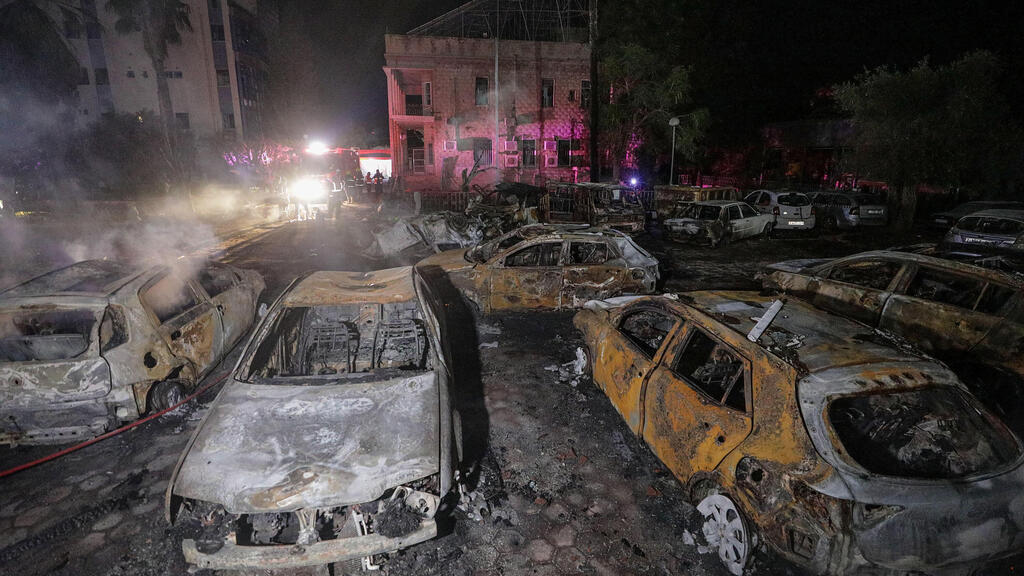

Aftermath of an explosion caused by a PIJ misfired rocket in Gaza
(Photo: Mohammed Saber / EPA)
A further source familiar with the Arab Media notes that “Al Jazeera were the only ones broadcasting from inside the hospital, and they were the ones broadcasting the pictures of the alleged 500 dead. The narrative was accepted in many places. And they obviously never said anything to the contrary - even when they knew for sure that it was inaccurate to say the least.”
Until recently, Al Jazeera viewers would occasionally see on their screens Israeli spokespersons, including IDF Arabic spokesman, Avichay Adraee. This has now been stopped. “Getting a few minutes a day didn’t mean very much when they’re broadcasting extremist messages against you throughout the rest of the day,” said a military source.
The IDF spokesman was interviewed by Al Jazeera, but only when Israel asked Gazans to evacuate southwards so as to open the humanitarian corridor. “Until then, Al Jazeera, didn’t broadcast the IDF’s messages about moving south” the source tells us. “It was of utmost importance that the message instructing people to move south reach their audiences.
6 View gallery
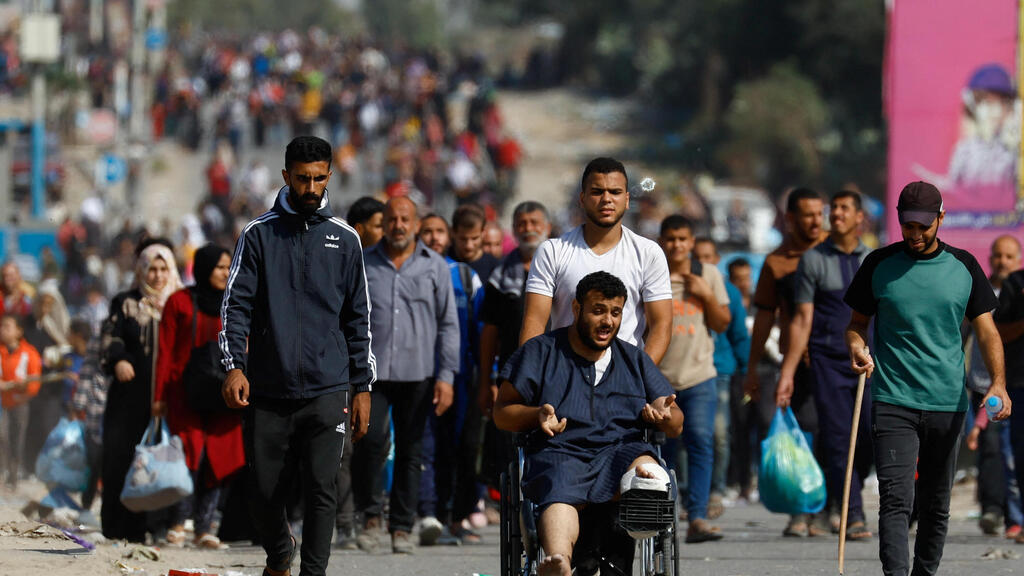

Residents of northern Gaza move south via the humanitarian corridor
(Photo: Ibraheem Abu Mustafa / Reuters)
In this specific case, it was imperative that he speak on Al Jazeera.“ Despite the channel’s stated intention of ‘reporting balanced news’, you won’t hear criticism of Hamas on Al Jazeera.” In at least two cases since the war began, Al Jazeera broadcast segments in which reporters were seen instantly taking microphones away from Gazans speaking out against Hamas.
Israel’s not alone in her disdain for Al Jazeera’s operations inside her own territory. Within the Arab world too, there’s fierce opposition to Al Jazeera. Egypt is a good example: The Qatari channel pushed the Arab Spring revolutions for its own agenda, causing Egypt to treat Al Jazeera as an enemy. The Syrian government, too, has a rather shaky relationship with Al Jazeera. Putting it mildly, this means that the Qatari channel is no fan of Hezbollah. Al Jazeera invariably describes Hezbollah, belittlingly, as a “militia.” Unsurprisingly, as Hezbollah joined the war against Israel, these relations have thawed, and Hezbollah has been receiving favorable coverage on Al Jazeera.
Al-Arabiya presenter slammed for addressing IDF Arabic Spokesperson with respect in interview
A further major international Arab news outlet is Al-Arabiya. Launched in 2000, Al-Arabiya is a Saudi response of sorts to Qatari TV success. “This is a more moderate channel” explains Issacharoff. “They also have reporters covering Israel. They won’t broadcast things supporting Israel, but they will criticize Hamas.” Al-Arabiya’s complex attitude to Israel led to enormous criticism of Layal Alekhtiar, a Lebanese presenter for Al-Arabiya. Her “crime”: She interviewed Adraee, addressing him as “Spokesman for the Israel Defense Forces” and “Mr. Adraee.”
Her critics claimed that these terms apparently suggested a sympathetic attitude. This, in turn, led to a social media campaign against her and even an official complaint against her in her home country where the law prohibits contact with Israelis. Although this had very little effect on Alekhtiar - who lives in the Gulf and has no intention of returning to Lebanon - it highlights the complex attitude to Israel of viewers across the Arab world.
A military source explains that Al-Arabiya is first and foremost “against Hamas” because “they’ll try showing they’re not pro-Israel but, ever since the war began, they’ve been looking forward to the ‘Day After’.” Lior Ben Ari, Ynet writer for Arab Affairs adds “Al-Arabiya wouldn’t want to be identified as being on the Israeli side, but they’re anti-Hamas.”
A further source adds “On the one hand, they talk about diplomatic processes, on the other hand, they’re very cautious about mentioning Israel. Since the start of Israel-Saudi normalization, Al-Arabiya have been trying to push the diplomatic route. Again, it’s all very cautious, enveloped in anti-Israelism, but it’s clear where they’re going with it. It’s very interesting to see that in recent weeks, they’ve stopped devoting all their news programs to what’s going on in Gaza. The graphic language is also tamer. Al Jazeera is still in war mode – Al-Arabiya less so now.” The same source says that this also goes for London based Saudi owned newspaper, Asharq Al-Awsat. “There, you can also see the desire to talk about the ‘Day After’ the war, and possibly also the day after Hamas. “
It's not just rich Gulf States that, directly or indirectly, own media outlets: Terrorist organizations actively fighting against Israel also own their own news channels. Hamas owns Al-Aqsa TV which, those interviewed for this article tell us, doesn’t even claim to be a news channel (“It’s openly a propaganda channel”). This contrasts sharply with channels identified with Hezbollah, Al-Manar and Al-Mayadeen which, despite working closely with the Shi’ite terrorist organization, at least try to formally adhere to the format of news channels.
“It's shameful that Al-Mayadeen broadcasts from Israel” says a source who deals with military matters on behalf of the state. “This is a media outlet that promotes terrorism, and it’s a full partner. It makes no sense that Israel would allow this.“ A few weeks ago, Minister for Communications Shlomo Kahri, announced his intention to close down Al-Mayadeen’s Israel office. This was authorized by the government. Issacharoff agrees: “It’s the Iranian branch of Hezbollah. They cover the Shi’ite world very favorably. Although it pales in comparison to Al Jazeera in terms of exposure, Al-Mayadeen is definitely watched.” Al-Manar is more blatant. “It actually belongs to Hezbollah. They pump money into it “ says Halabi.
The branched nature of media outlets, terrorist organizations and political entities creates a complicated, yet predictable, dynamic of distribution of information and content. Hamas will prefer giving exclusive hostage release material to Al Jazeera rather than to the organization’s home channel. “The reason is obvious” says an expert in the field. “They need the support of the Qatari channel, but they can’t control it like they control Al-Aqsa TV.”
Alongside local and international networks, Egyptian media outlets have also entered the picture with broadcasts from the Rafiah crossing. That said, they’re also careful about their terminology and don’t deal extensively with the Israeli hostages. They don’t even utter the word. “They refer to the hostages as being ‘held’ “ Halabi explains. Most of their media coverage, anyway, is reserved for the Palestinian prisoners released in exchange.
And you’ll hardly hear about the October 7th massacre in the mainstream Arab media. The narrative centers on reporting the Palestinian destruction in Gaza. “One of the reasons the Palestinian narrative is so strong is that they have no special respect for the dead. Everything is open. They show the most horrific pictures, without blurring the images. “
A repeated criticism of Israeli broadcasts, primarily on social media, is the security danger of exposing forces in assembly areas. The IDF, however, is less concerned: “We’re assuming that anyone with a mobile phone can expose their location, and the IDF can deal with that” says a senior security official. “That’s not the problem”
The problem - at the end of the day - is the content itself, the ideology and incitement. “Al Jazeera is a provocative news outlet” the security official says. “Everything they broadcast has an agenda. Closing them down won’t stop them broadcasting, but it will reduce the possibility of Israeli Arabs watching Al Jazeera. Our information tells us that lots of Israeli Arabs do watch it.”
Despite their declarations, Israeli politicians have yet to close the local Al Jazeera offices
In the meantime, it doesn’t look like anyone is taking up taking up the gauntlet. Although, Communications Minister, Shlomo Kahri and the attorney general reached an agreement on the matter at the start of the war, the subject has been dropped from the headlines and has faded away.
Some attribute this to the Qatari brokered negotiations for the release of hostages, although there is no confirmation that the two are connected. “We’re working on it, but it’ll take more time” a political official told Ynet, stressing that the delay is “due to legal issues.” However, the state encountered no such delay factors in the case of Al-Mayadeen. The cabinet has approved closing down their offices following a review stating that Al-Mayadeen constitutes “real harm to the security of the country.” The orders, signed by the minster for communications, led to blocking Al Jazeera’s website in Israel and the confiscation of equipment.



